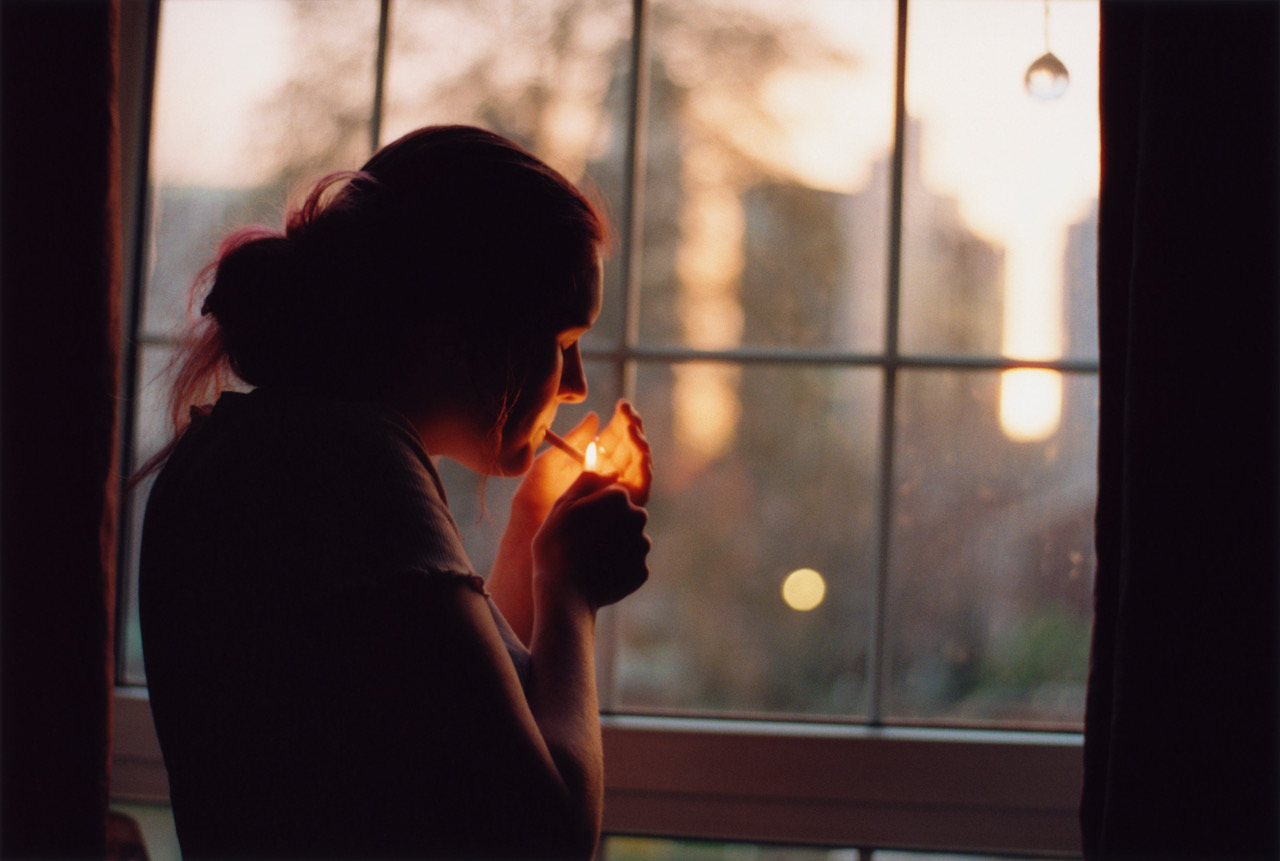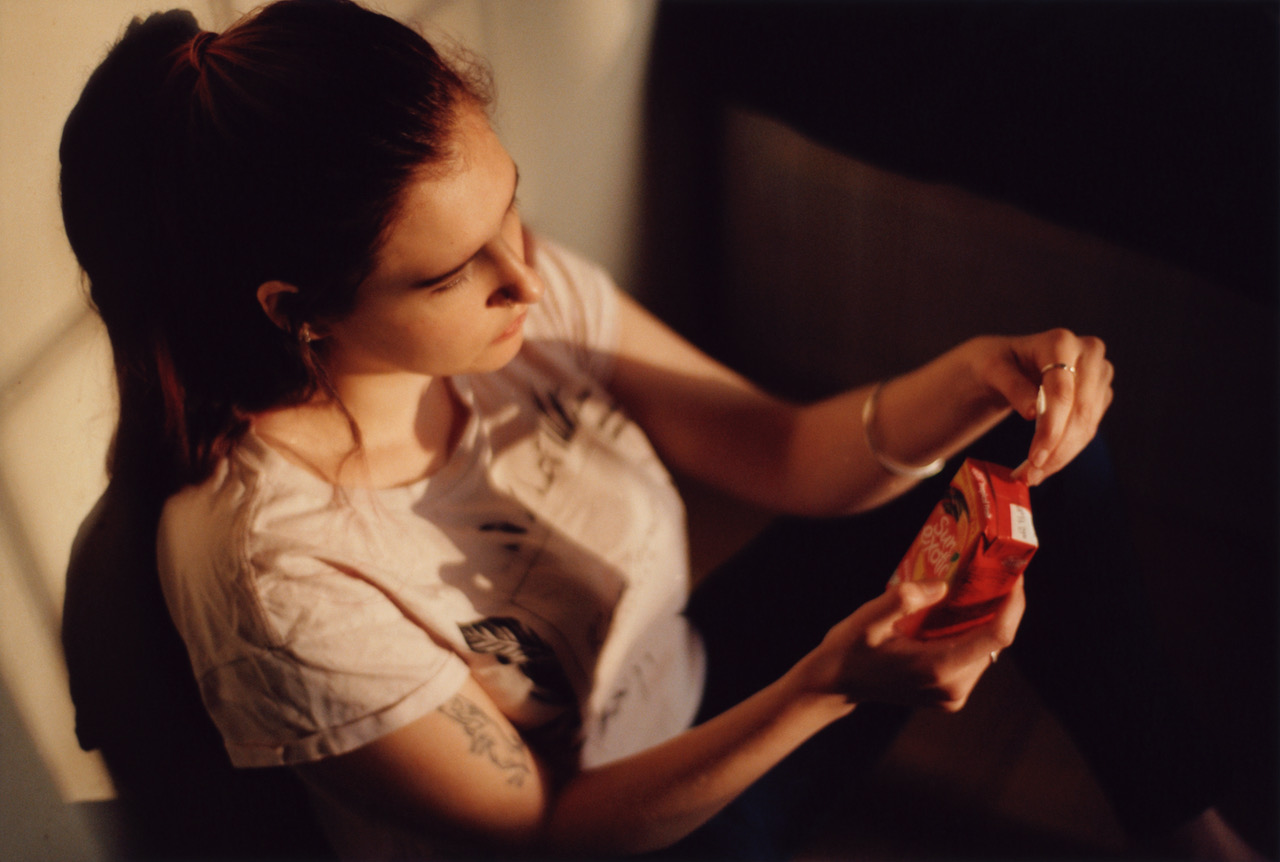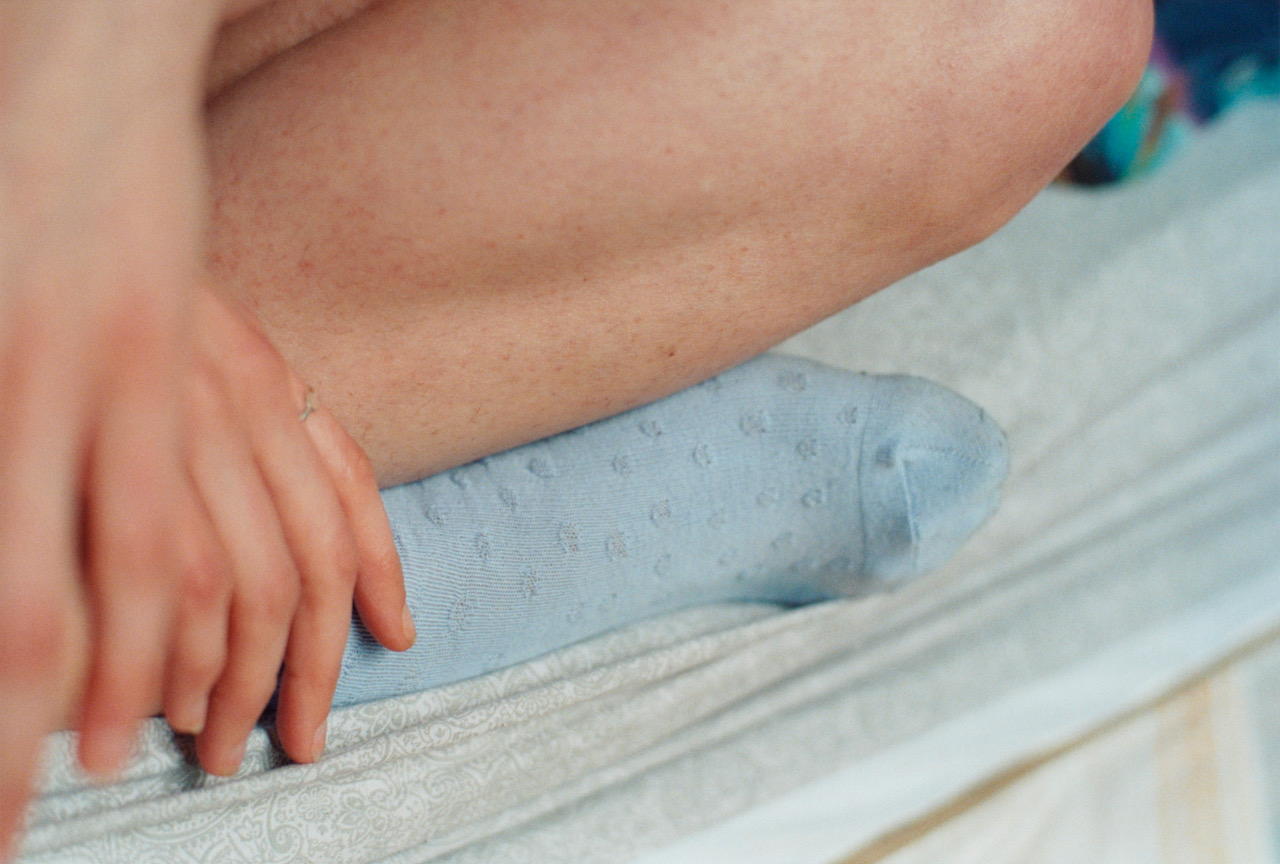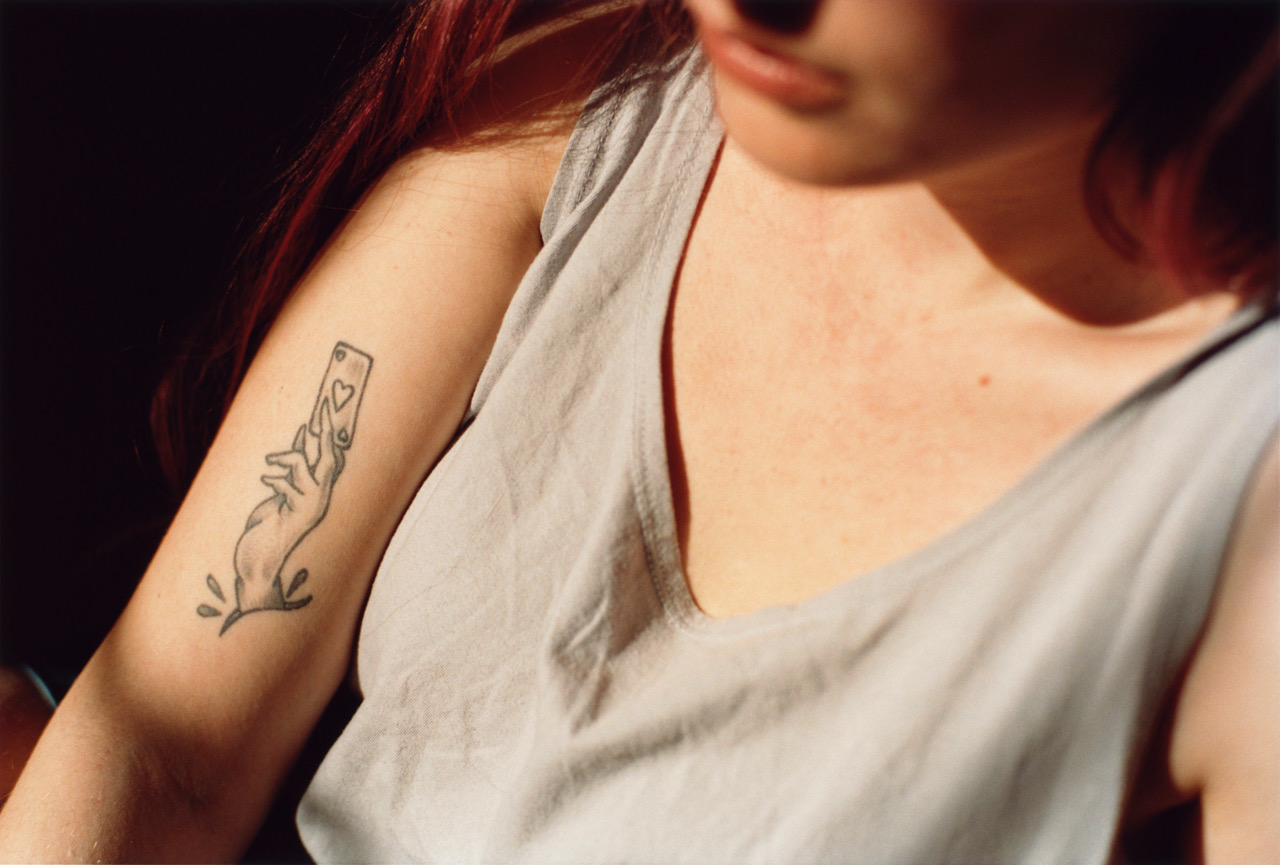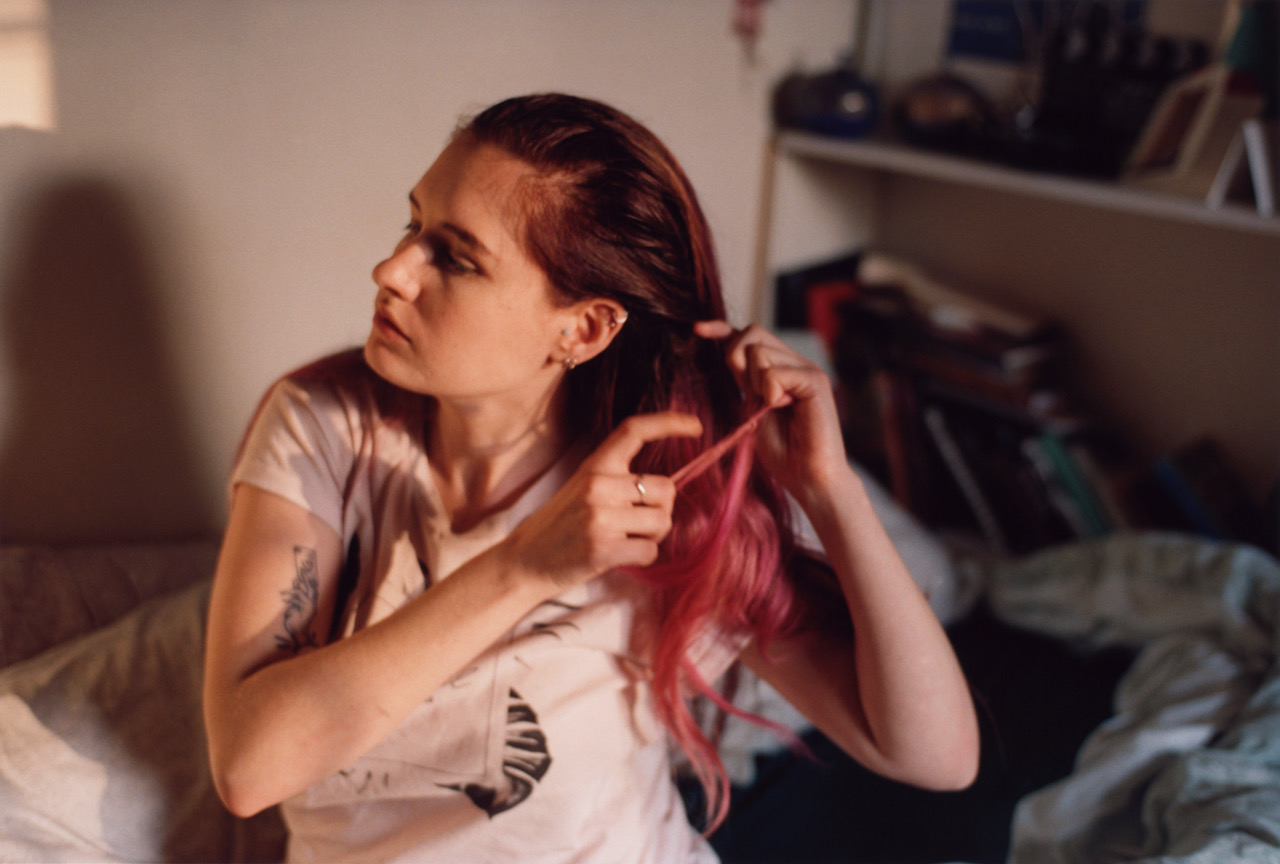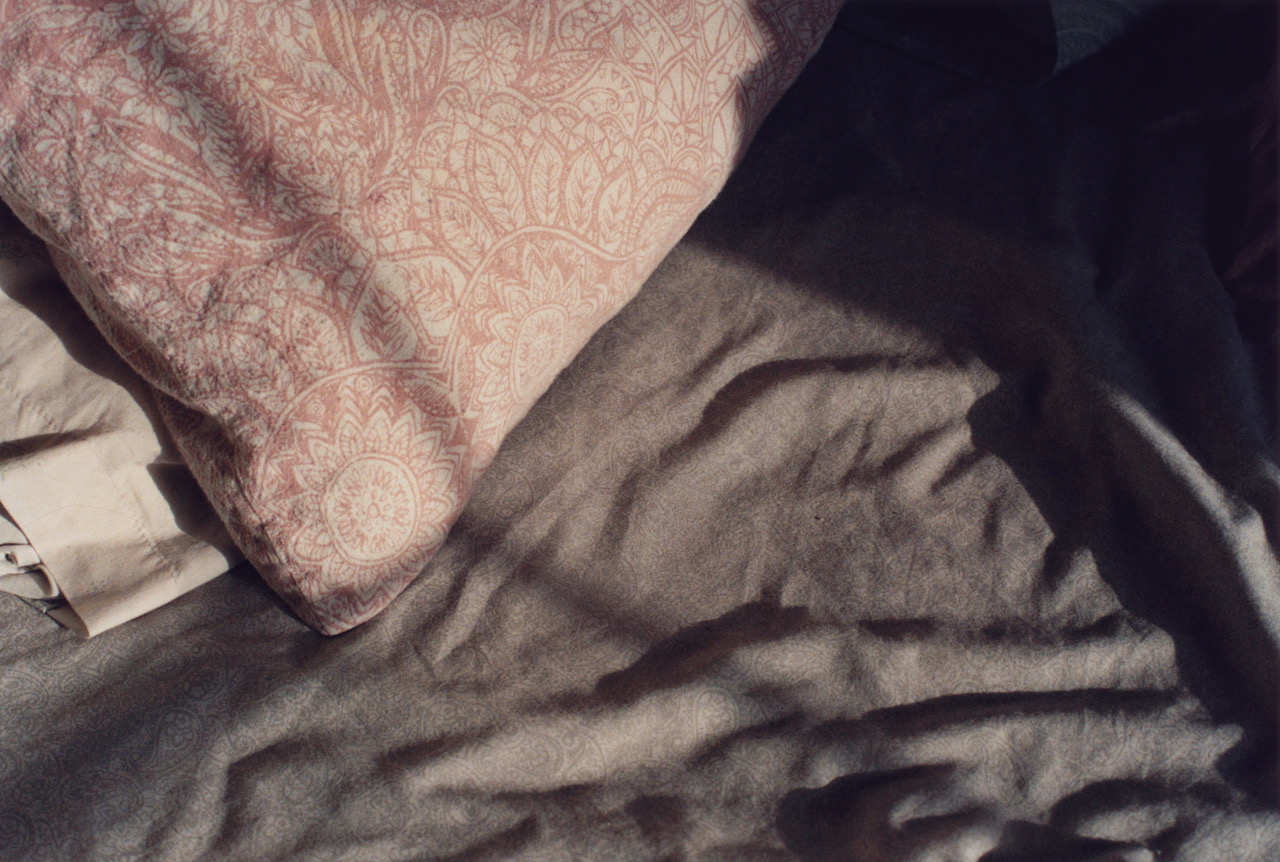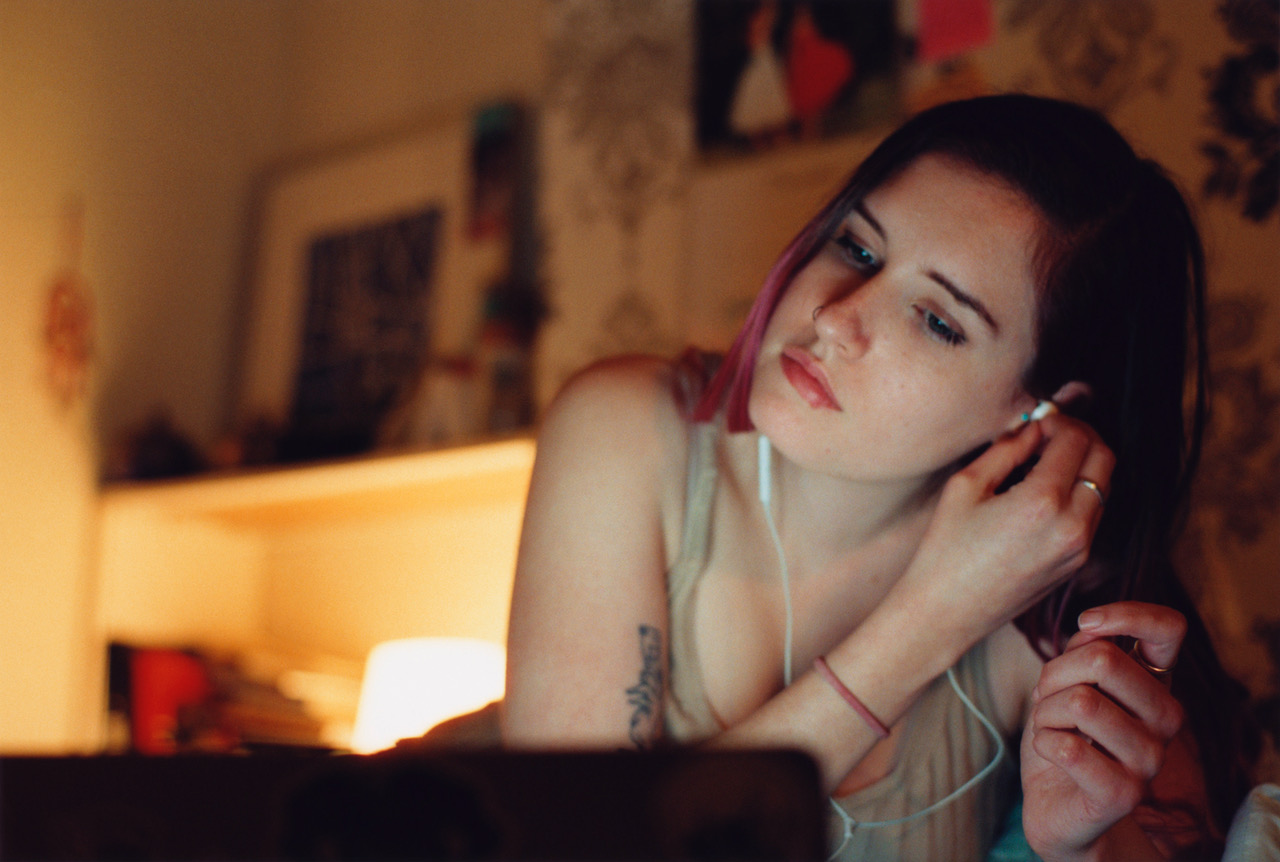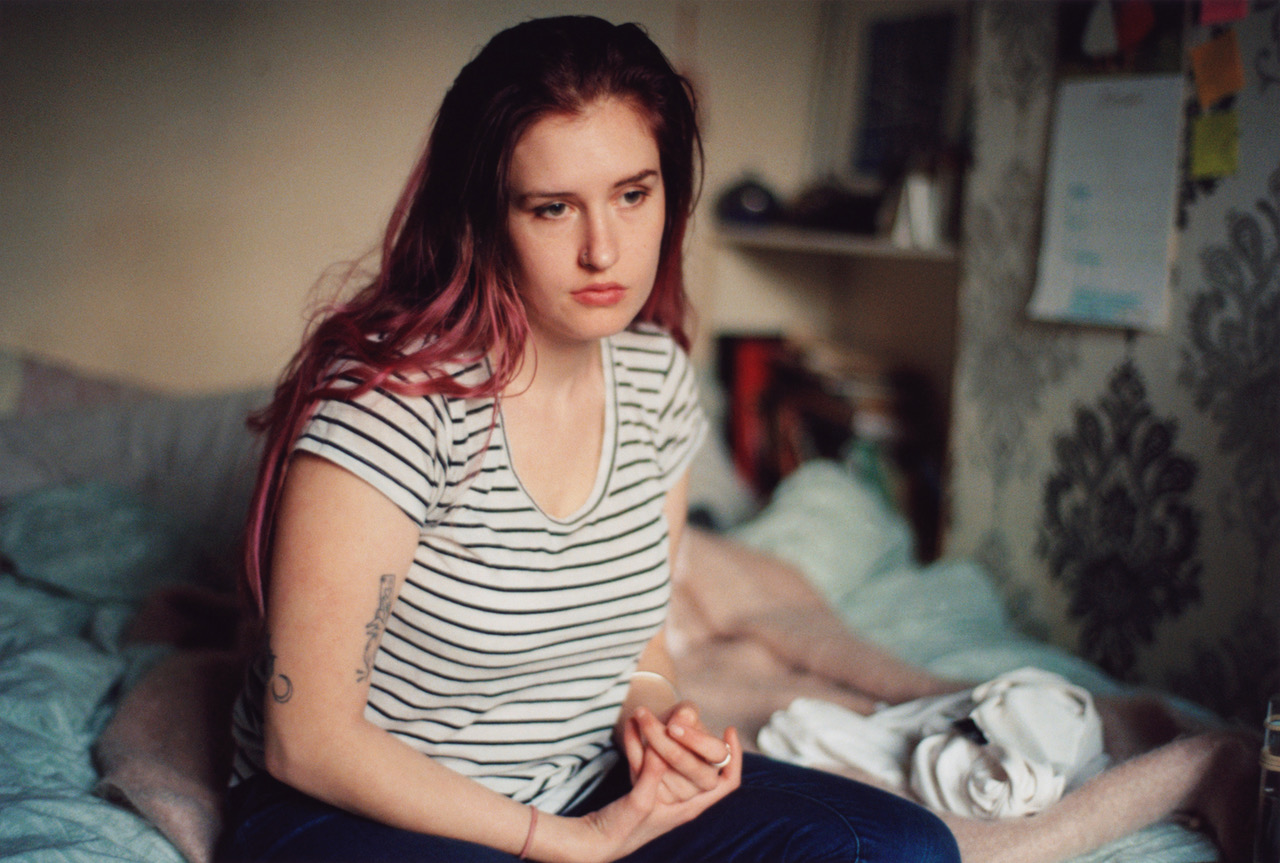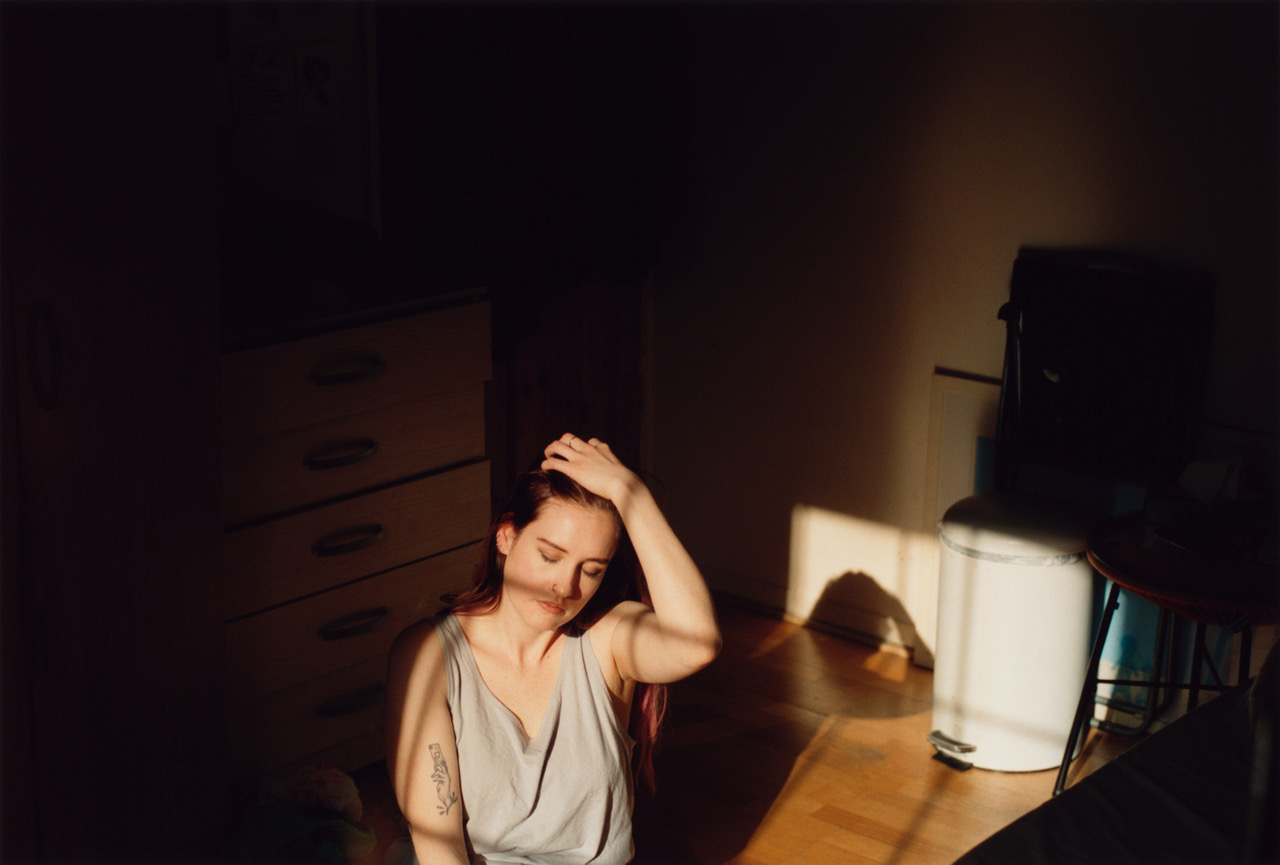All images from the series ‘Hannah’ © Enda Bowe
Award-winning novelist Lucy Caldwell worked with Bowe on ‘Days’, a new story to accompany his show at Dublin’s Royal Hibernian Academy
Days
You measure these days by the span of their light.
Today the sun rose at 07.59 and will set at 16.20. That’s already seven minutes earlier, and nineteen later, than the year’s first day. By the end of the month it will be 07.40 and 16.47 – forty-six more minutes than now. Forty-six more minutes of day to fill – to use, to think with, to have to make count…
You found a quote on someone’s Insta that you copied out on a Post-it note and stuck to your mirror: Where can we live, it says, but days?
Brushing your hair, you watch yourself watching: make your mirror-face make a face that understands. Time is the measure of our days, and a handful of minutes can contain as much as anything; even a single minute, a lifespan.
Another Post-it quote: Your fresh start begins NOW
Any moment we can choose to start again. This moment. This moment. This.
You heave up the big sash window to let the outside in. It tastes damp – of car fumes, tinged with foxes. In the raw winter air, wet clothes have been on a washing line in a back yard below for three days now, abandoned, or forgotten.
You stand till your bare skin rushes with goosebumps.
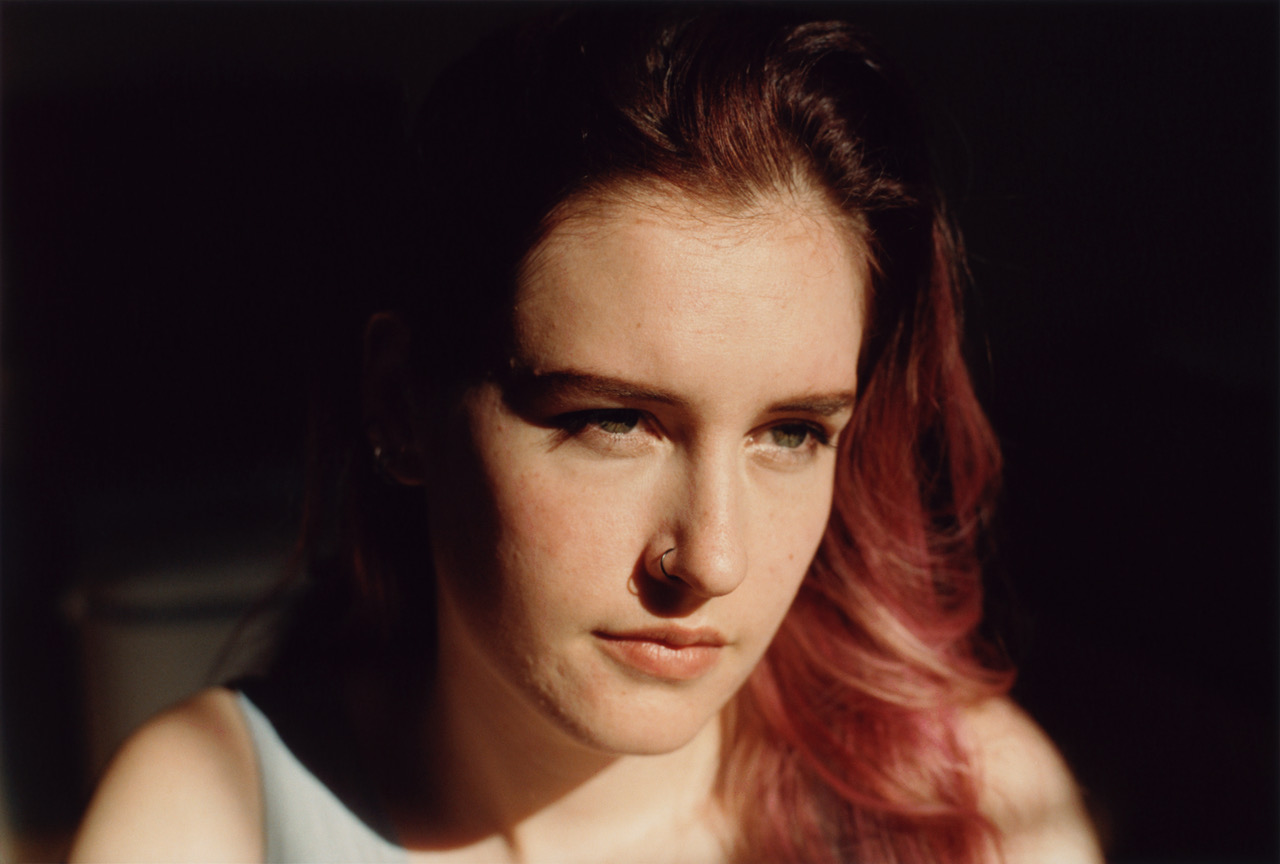
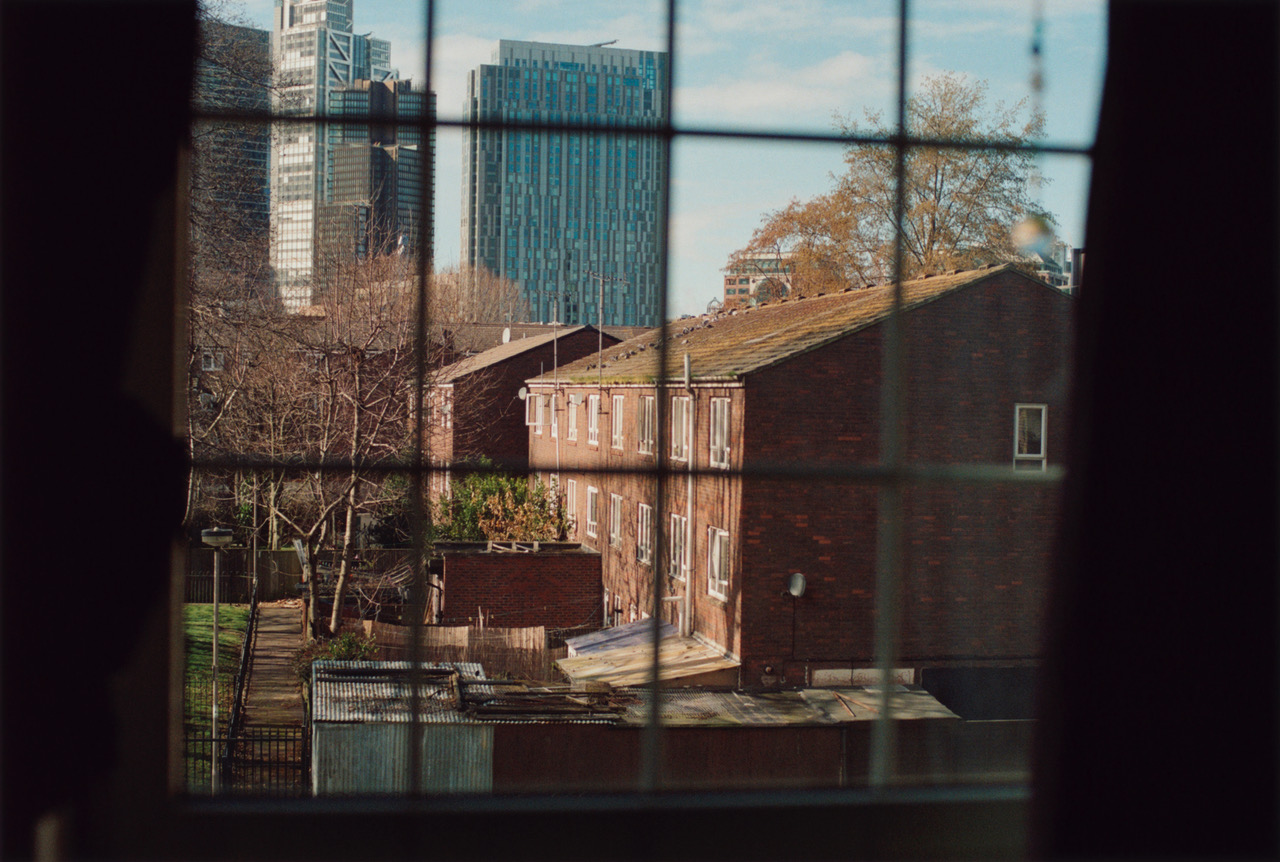
As you get dressed, the soft familiarity of a worn t-shirt, you remember being a teenager and wearing the same pair of tights for days on end, because newly-washed tights were always so staticky and made your skin creep and jump, whereas worn tights were soft and warm, and had your foot-shape just ready for you…
You place your socked feet carefully on the wood-laminate patterns on the floor – a tightrope, train-tracks, a tightrope again.
You pick up stray filaments of hair from the floor, like a fairy-tale’s spun pink-gold, and twine them round your fingers. At this time of the morning, the room is awhirl with dust motes. You wonder how long you would have to stay here before you were consuming more of yourself with each breath than you were shedding – like an ouroboros, or a mathematical puzzle of endless beginnings.
Now. Now, now, now.
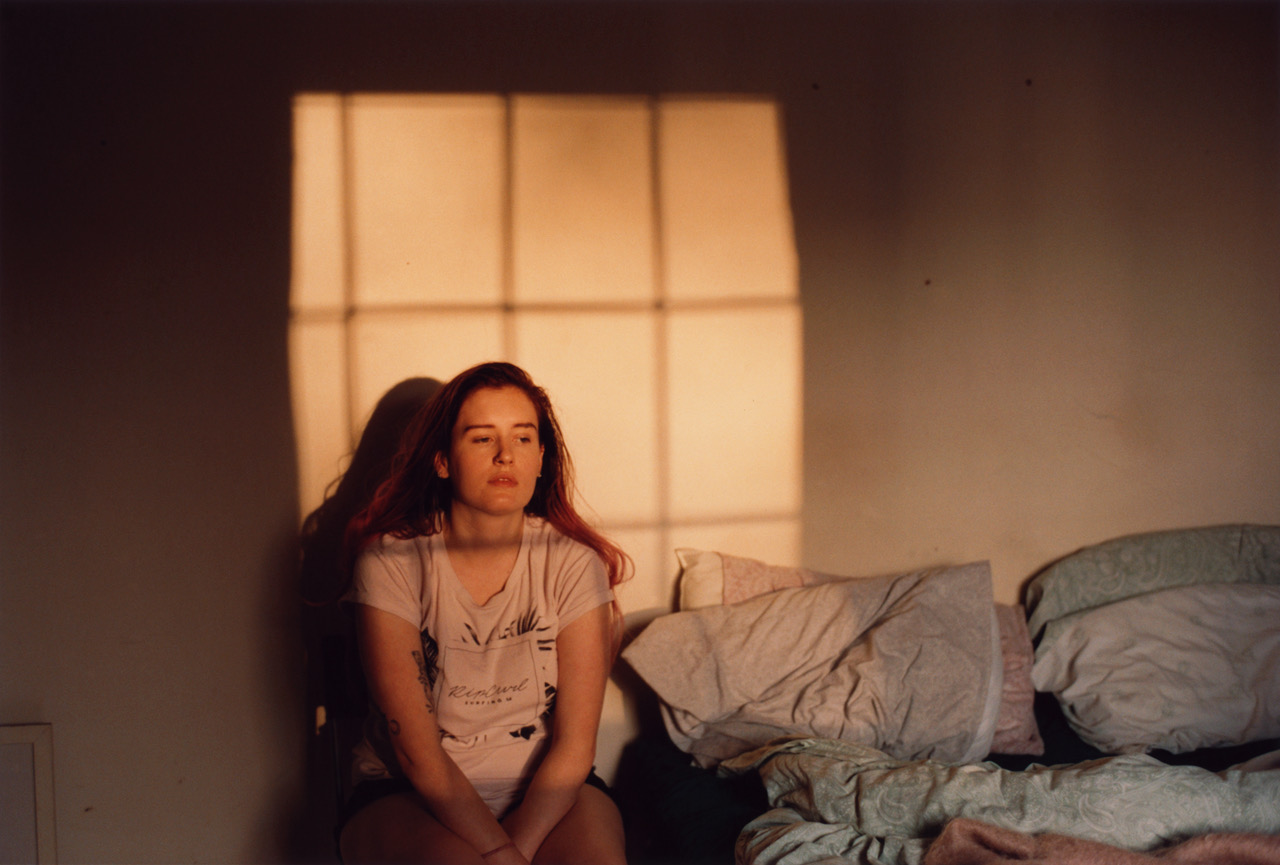
The uncompromising slant of the morning’s light casts oblique sharp shadows, hard-edged diamonds. You imagine intricate tunnels leading to underground caverns and sacred Neolithic tombs, places that come into alignment for just one moment a year. At the right place, at the right time, a portal opens to another dimension.
But you don’t think there’s an easy way through these minutes, these days, this life, for anyone.
I will always choose a lazy person to do a difficult job because they will always find an easy way to do it.
You look out, as the lights come on in the mid-afternoon, at the illuminated boxes of people’s lives, at the people moving back and forth across the screens of their own existences, resigned, oblivious. You think of the cities that you’d build for your Sims, the speed with which they’d go up. The moment the helicopters would appear on the helipads. Their bulletins of gratitude or sudden despair, flashing by in a stream of ticker-tape. The mosaic lights of the windows in the far skyscrapers sometimes seem to you patterns that could be decoded, like binary blocks of computer code, or Morse, if you only knew how.
At a certain point of the sun’s setting, it swings between the tower blocks to the west and catches the crystal pendant hung from your window, and for a long moment the room fills with dancing orbs of light. When you were a kid, you think, you would have thought them fairies – would have scampered round trying to clutch your hands around them. When you were a kid, you begged and begged God for wings, craned at your shoulder-blades in the bathroom mirror, so convinced that the first feathery tips were about to break through that you could feel the prickling itch of them. Your favourite book then was about a little girl who longs more than anything to fly. She tries jumping from her wardrobe and flapping her arms, tries cutting wings out of cardboard and taping them on. Then one day, the postman delivers a mysterious girl-sized chocolate egg: she unwraps and eats her way through it, and discovers, as if pleasure is its own sort of magic, that she can now fly effortlessly. Her mother, her father, her teachers, her neighbours, for the rest of the book they all chase after her, trying to catch her with a net, trying to chase her in a hot-air balloon, determined to trap her and to bring her down, so terrified were they by her freedom, her wild, anarchic joy.
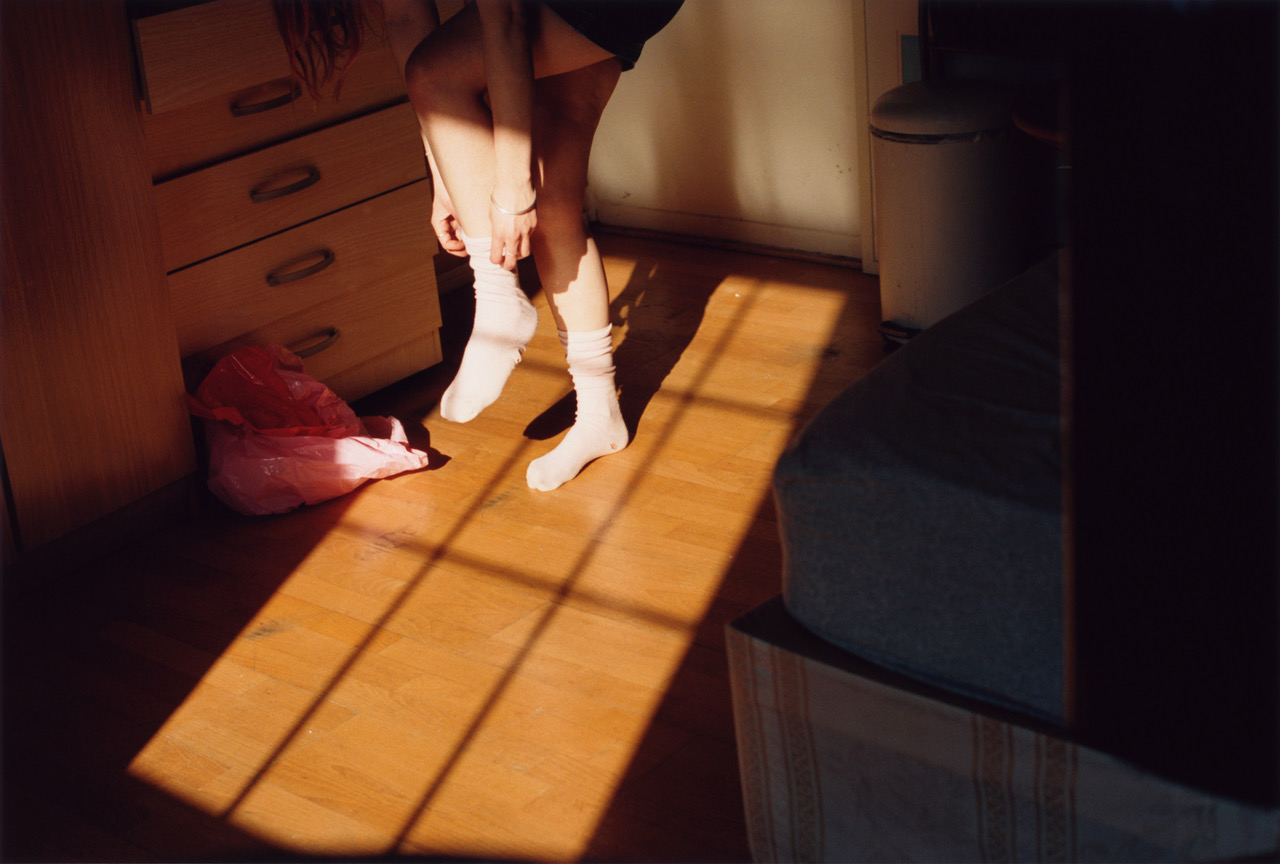
It terrified you too, the places you might go once you had wings.
You did fly away, in the end, though by aeroplane – as far as you could, to the opposite side of the globe, and now it’s too hard to go back.
You smoke.
You switch on the fairy-lights strung across your wall and look for messages hidden in the calligraphy in the wallpaper.
You make your pink toothbrush long for a blue toothbrush. Or another pink toothbrush.
You make your toothpaste sing to your toothbrush, Squeeze me, squeeze me, never let me go.
You watch for the final moment of light, when the secret cross flares in the top-right corner of the building opposite.
At that moment, you cross off the day on your ironic Women’s Weekly calendar.
Tomorrow, an extra two minutes of daylight.
You will the dark shapes of the trees outside to imagine their leaves.
You will them to try harder.
Enda Bowe, Hannah, is at The Royal Hibernian Academy, Dublin, until 01 October

